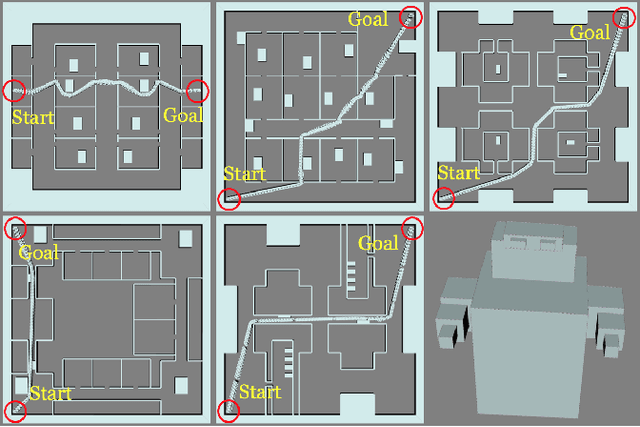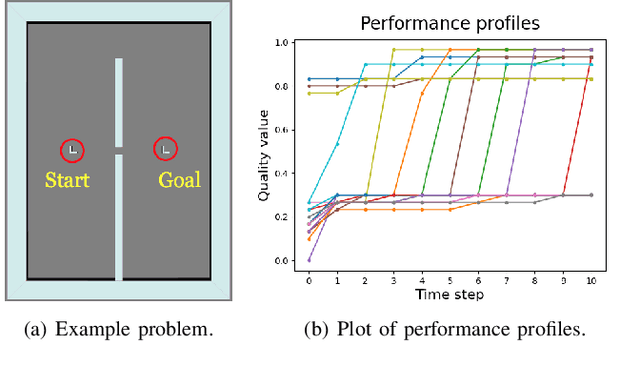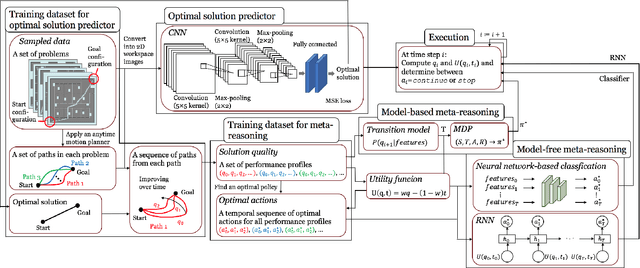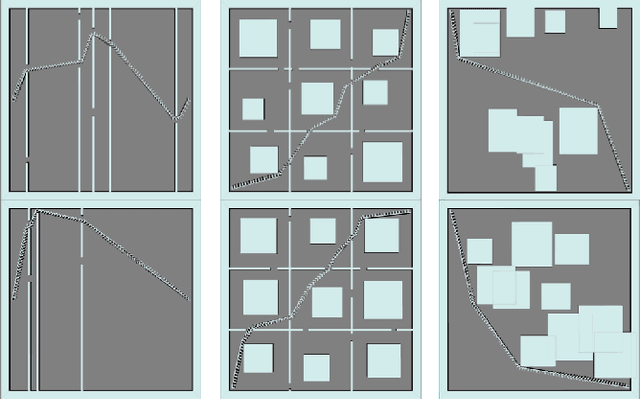Learning When to Quit: Meta-Reasoning for Motion Planning
Paper and Code
Mar 07, 2021



Anytime motion planners are widely used in robotics. However, the relationship between their solution quality and computation time is not well understood, and thus, determining when to quit planning and start execution is unclear. In this paper, we address the problem of deciding when to stop deliberation under bounded computational capacity, so called meta-reasoning, for anytime motion planning. We propose data-driven learning methods, model-based and model-free meta-reasoning, that are applicable to different environment distributions and agnostic to the choice of anytime motion planners. As a part of the framework, we design a convolutional neural network-based optimal solution predictor that predicts the optimal path length from a given 2D workspace image. We empirically evaluate the performance of the proposed methods in simulation in comparison with baselines.
 Add to Chrome
Add to Chrome Add to Firefox
Add to Firefox Add to Edge
Add to Edge